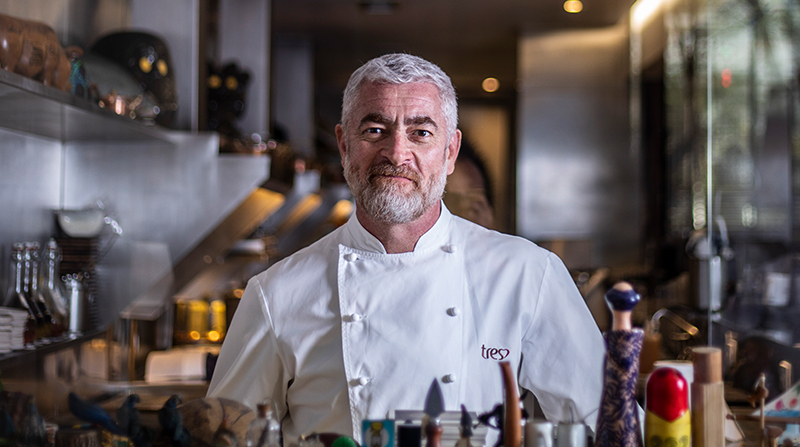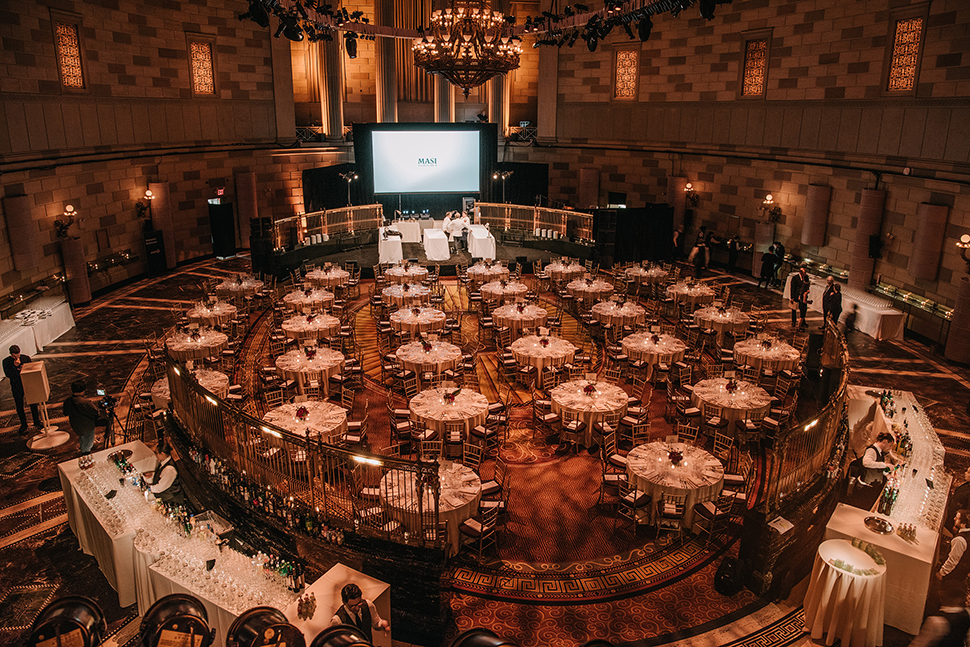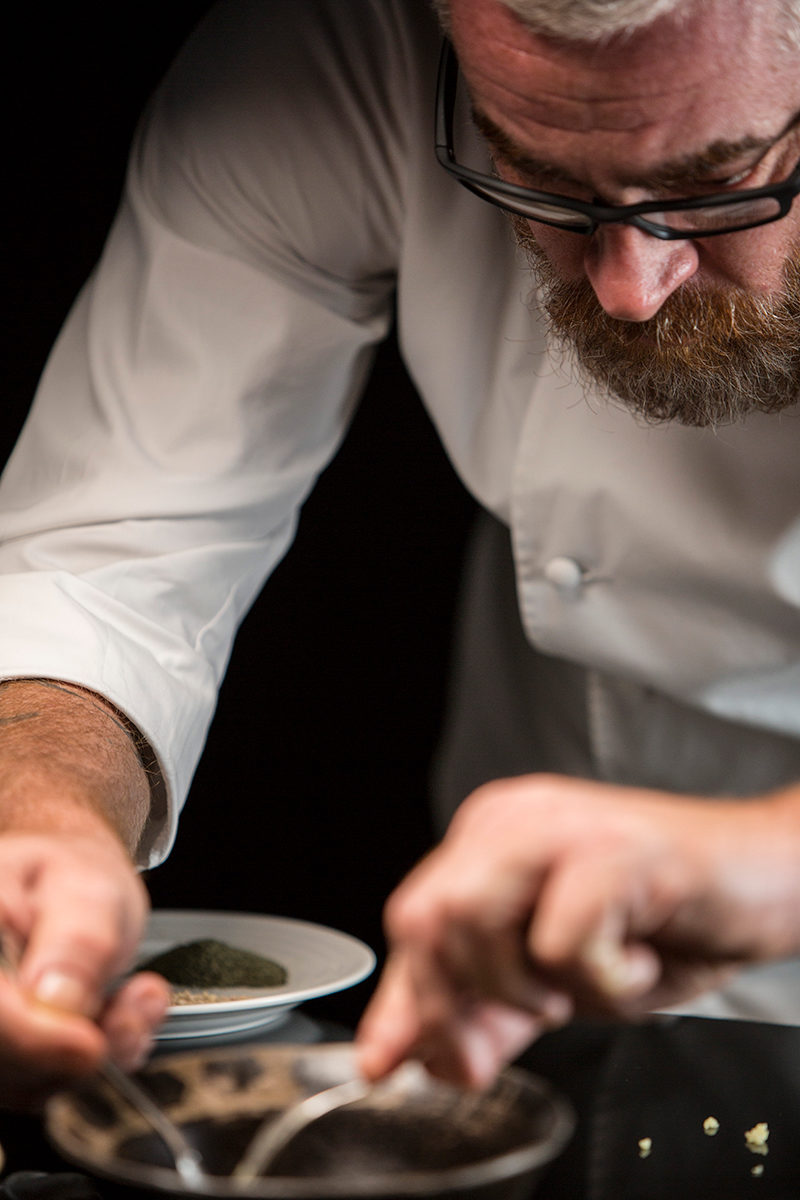

We have no idea what feasts are like in the afterlife, but if we had to guess, we’d bet that they look and taste a lot like this year’s Once Upon a Kitchen, an elaborate epicurean fête being cooked up by the Gr8 Group on December 1 in Miami Beach.
The one-night, Forbes Travel Guide-sponsored affair will transport you to a world filled with flavor sprinkled about a multi-course meal from four of the world’s most decorated chefs: Alex Atala, Massimo Bottura, Mauro Colagreco and Antonio Bachour. Dinner will be accompanied by special cocktails from master mixologist Alex Ott and pairings by wine expert Roberto Cipresso. The ambiance will be conjured up by some of the same minds behind Cirque du Soleil’s last World Expo event in Milan. To call the evening magical might be the understatement of the season.
Brazil’s Atala is a huge reason the foodie faithful are so excited about this event. As diners at his boundary-pushing Sao Paulo restaurant D.O.M. (and viewers of Netflix’s Chef’s Table season 2) can confirm, Atala is as masterful with his words as he is with his knife. So, when we approached him about an interview, we already knew his answers would be sharp.
What should guests expect from Once Upon a Kitchen?
It will be an amazing opportunity to show the world the autochthonous Brazilian ingredients, like Yanomami mushrooms and the Baniwa chili. Also, always an honor to cook with friends like Massimo, Mauro and Antonio.
When it comes to these kinds of collaborative dinners, how does your approach to cooking change?
It doesn’t. Cooking, same as eating, is supposed to be a celebration of flavors and a chance to share experiences. It is like that when I cook at my restaurant, and it gets even better when I cook with friends.

When someone eats one of your dishes at Once Upon a Kitchen, or when they’ve tried something at D.O.M., what feelings do you want them to have?
Getting people to come out of their comfort zone and sending a message — I believe those are the main goals to our cooking at D.O.M. today. Serving dishes with ants is one example of that. I’m very optimistic about the idea of insects in gastronomy.
Without a doubt, the ants that we use at D.O.M. have inspired many chefs to follow this idea, which many people think is crazy. The ants are an example of the little surprises gastronomy can give us. The main reason for me to use them is because they are truly full of flavor. I believe tasty insects can and should be served in restaurants.
Just as important, though, insects are a source of protein and potentially a dietary supplement for the more than 7 billion people in the world. This is fundamental and a way of transforming how we feed the world.
What makes D.O.M. such a special restaurant?
I find it quite difficult to tell which the world’s best cuisine is: French, Italian, Spanish, Japanese. However, I am absolutely convinced that Brazilian cuisine is not the worst.
The length of our territory is so enormous that it creates a huge diversity in many aspects. [The nation] has almost a continental size, and it creates, inside one single country, many different ways to deal with food regarding cultural aspect and also gives us a giant variety of ingredients.
Excellence can only be reached with repertoire. With all the ingredients our country provides, it’s easy to acquire that repertoire.

Why do you love to cook?
After 30 years working in the kitchen, what excites me the most is to watch myself become more and more certain that this is an endless road. Putting my uniform on every morning makes me realize that the possibilities that this road offers are way broader than I have ever imagined.
Some people only know Brazilian cuisine because of the myriad steakhouses. If you had to describe the main culinary styles of the flavorful country, how would you do it?
The world still has no references about our flavors. When you speak of Japanese cuisine, sushi comes to mind. When you speak of Italian cuisine, you imagine cheese, tomatoes and olive oil. When you speak of Peruvian cuisine, ceviche shows up. It is of main importance that the world knows that tapioca is Brazilian and not Chinese.
They must know tucupi, our fruits, our herbs, flours, our fish, the canastra cheese. Besides our effort to bring our ingredients to the knowledge of those who live abroad, Brazil entered the radar of many chefs from other countries, which contributes to change this scenario.
We have an enormous variety of flavors that must be discovered. Biodiversity, when just spoken, has no value, but when tasted, gains value. There is no point to keep trying to describe the flavors of Brazil. You have to come and taste it.
When you’re not in a kitchen, what can you be found doing? What are your hobbies?
Cooking is like fire in my life and practicing jujitsu is like oxygen. As fire doesn’t burn without oxygen, jujitsu gives the fuel to keep working.
For tickets to Once Upon a Kitchen, click here.
